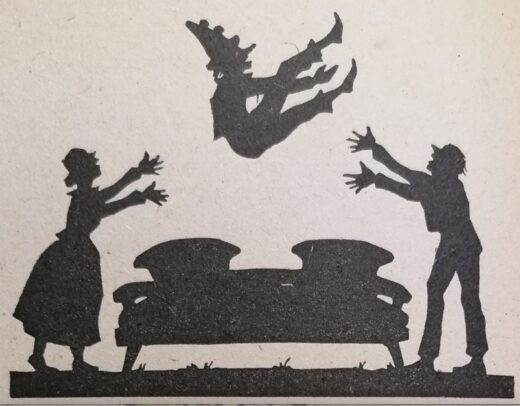
Printed
38 pages
Author(s)
Die Fahrt zum Mars
Marionettenspiel in sechs Aufzügen
Written immediately after the Second World War, the piece by Ludwig Schuster was published with authorisation by the American military who was occupying Bavaria. As is common with Schuster's works, the character of Kasperl is considerably transformed - a disobedient child who still lives with his parents.
The representation of Mars and of the Martians takes up standard motifs of the "other" during colonial times: the Martians have a king, they speak an incomprehensible language (but are able to learn several words in German), they can be put in zoos because they hardly resemble human beings, and Mars represents the danger of being destroyed. The moral lesson, imparted to Kasperl by the sage, highlights the dangers of the unknown: "Was man nicht kennt, davon soll man die Finger lassen!" (What a man does not know, he should not touch!).
A disobedient child runs away but returns home in the end
The Wiseman Weitschuss has built a rocket to go to Mars. When Kasperl messes with the buttons, he accidentally causes the rocket to take off. He arrives on the red planet, where he teaches German to Martian Zweikopf, who brings him before the king. The latter wants to inspect the rocket and, pushing the wrong button, flies to Earth. The king is treated as an exotic creature and is exhibited at the zoo while the rocket returns to Mars. Kasperl escapes the vengeance of the Martians and returns to his parents.
First performance
Peißenberger Puppenspiele, artistic director: Ludwig Schuster
Publications and translations
Schuster, Ludwig. Die Fahrt zum Mars. Söcking: Bachmair, 1947.
